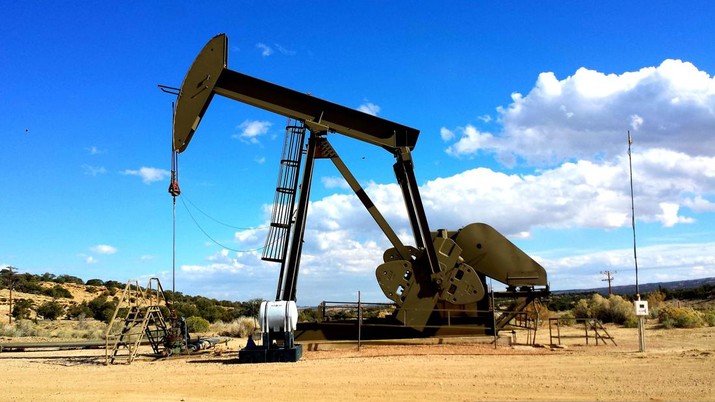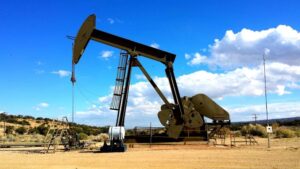

thatwebguyblog.com, Jakarta – Welcome to the land of black gold, where vast reserves lie beneath the sands and shape global economies – the Middle East! Ever wondered why this region has an abundance of oil? Let’s embark on a journey through time and explore the fascinating story behind why the Middle East has so much oil.
Historical background and discovery of oil in the region
The Middle East’s rich history is intertwined with the discovery of oil, a resource that would shape the region’s destiny. It all began in the early 20th century when explorers struck black gold beneath the sands of countries like Saudi Arabia, Iran, and Iraq. The sheer abundance of oil reserves transformed these nations from desert landscapes to economic powerhouses almost overnight.
As word spread about the vast wealth hidden beneath the ground, international interest in the Middle East peaked. Major oil companies rushed in to secure drilling rights, setting off a frenzied era of exploration and extraction. The discovery of oil not only brought newfound prosperity but also geopolitical complexities as global powers vied for control over this precious commodity.
The impact was profound – traditional societies were catapulted into modernity while governments amassed unprecedented wealth. However, this newfound fortune also sparked tensions and conflicts as nations grappled with how to manage their newfound riches and navigate volatile global markets.
Factors contributing to the Middle East’s dominance in global oil production
The Middle East’s dominance in global oil production is not a coincidence but rather the result of several key factors. The region is geographically blessed with abundant oil reserves, making it a natural hub for extraction and distribution. Additionally, the discovery of oil in countries like Saudi Arabia, Iran, and Iraq played a crucial role in establishing their positions as major players in the industry.
Political stability has also been a contributing factor to the Middle East’s dominance in global oil production. Countries like Qatar and the UAE have managed to leverage their political relationships effectively to secure trade agreements and partnerships with international markets. Furthermore, investment in infrastructure and technology has enabled these nations to optimize their oil production processes efficiently. Moreover, the Organization of Petroleum Exporting Countries (OPEC), which includes several Middle Eastern countries, has allowed them to collectively influence global oil prices and maintain market control. This strategic collaboration gives them an edge over other oil-producing regions worldwide.
Impact of oil on the economies and political landscape of Middle Eastern countries
Oil has been a game-changer for the economies of Middle Eastern countries, propelling them into global significance. The discovery of vast oil reserves in the region transformed once modest nations into wealthy powerhouses virtually overnight. The revenue generated from oil exports has allowed these countries to invest in infrastructure, education, and healthcare, raising living standards for their citizens. However, this newfound wealth has also led to economic dependency on oil and fluctuations in global oil prices can have far-reaching consequences on these nations.
Moreover, oil wealth has played a significant role in shaping the political landscape of the Middle East. It has influenced alliances, conflicts, and even foreign policy decisions both within the region and beyond. The control over valuable oil resources has often sparked tensions between neighboring countries vying for dominance. It is undeniable that oil has been a double-edged sword for Middle Eastern countries – bringing prosperity but also complexities that continue to shape their economies and political dynamics today.
Controversies surrounding the extraction and use of oil in the region
In the Middle East, the extraction and use of oil have been surrounded by controversies that often spark heated debates. One major issue is the environmental impact of oil drilling and production, leading to concerns about pollution and climate change. Communities near oil fields sometimes face health risks due to air and water contamination from extraction activities.
Additionally, there are political tensions stemming from control over oil reserves, with competition for power and influence among countries in the region. The economic dependency on oil revenue has also raised questions about diversification strategies for sustainable development. Human rights abuses related to labor practices in the industry have further added to the contentious nature of oil extraction in the Middle East.
Furthermore, conflicts over resource ownership and distribution have led to disputes both within countries and between nations. The social implications of wealth disparities resulting from oil revenues contribute to social unrest and inequality issues. Navigating these controversies requires careful consideration of economic, environmental, political, and social factors intertwined with oil production in the region.
The future of oil in the Middle East and potential challenges
As we look ahead to the future of oil in the Middle East, several challenges loom on the horizon. One major concern is the increasing global shift towards renewable energy sources, posing a threat to the traditional dominance of oil. Countries in the region must adapt and diversify their economies to reduce dependence on oil revenue.
Another challenge is the environmental impact of oil extraction and production. With growing awareness of climate change and environmental degradation, there is mounting pressure on Middle Eastern countries to adopt more sustainable practices in their oil industry. This includes investing in cleaner technologies and reducing carbon emissions.
Geopolitical tensions also present a significant challenge for the future of oil in the region. Conflicts and instability can disrupt production and supply chains, leading to economic uncertainties for both local governments and international markets. Finding ways to mitigate these risks will be crucial for ensuring stability in the Middle East’s oil sector moving forward.
Innovation and strategic planning will be key factors in overcoming these challenges. By embracing new technologies, promoting sustainability initiatives, and fostering diplomatic relations, Middle Eastern countries can navigate through potential obstacles and secure a prosperous future for their valuable oil resources.
Conclusion
The Middle East’s abundant oil reserves have shaped the region’s history, economy, and global influence for decades. From its historical discovery to its current dominance in global oil production, the Middle East plays a crucial role in meeting the world’s energy needs. Despite controversies surrounding oil extraction and use, countries in the region continue to rely on this valuable resource.
As we look towards the future of oil in the Middle East, challenges such as shifting global energy demands and environmental concerns may impact the industry. However, with strategic planning and innovation, countries in the Middle East can navigate these challenges while continuing to play a significant role in the global oil market. The Middle East’s abundance of oil has not only shaped its own destiny but also influenced geopolitics worldwide. As we move forward into an era of evolving energy landscapes, it will be interesting to see how countries in this region adapt and thrive in a changing world.






